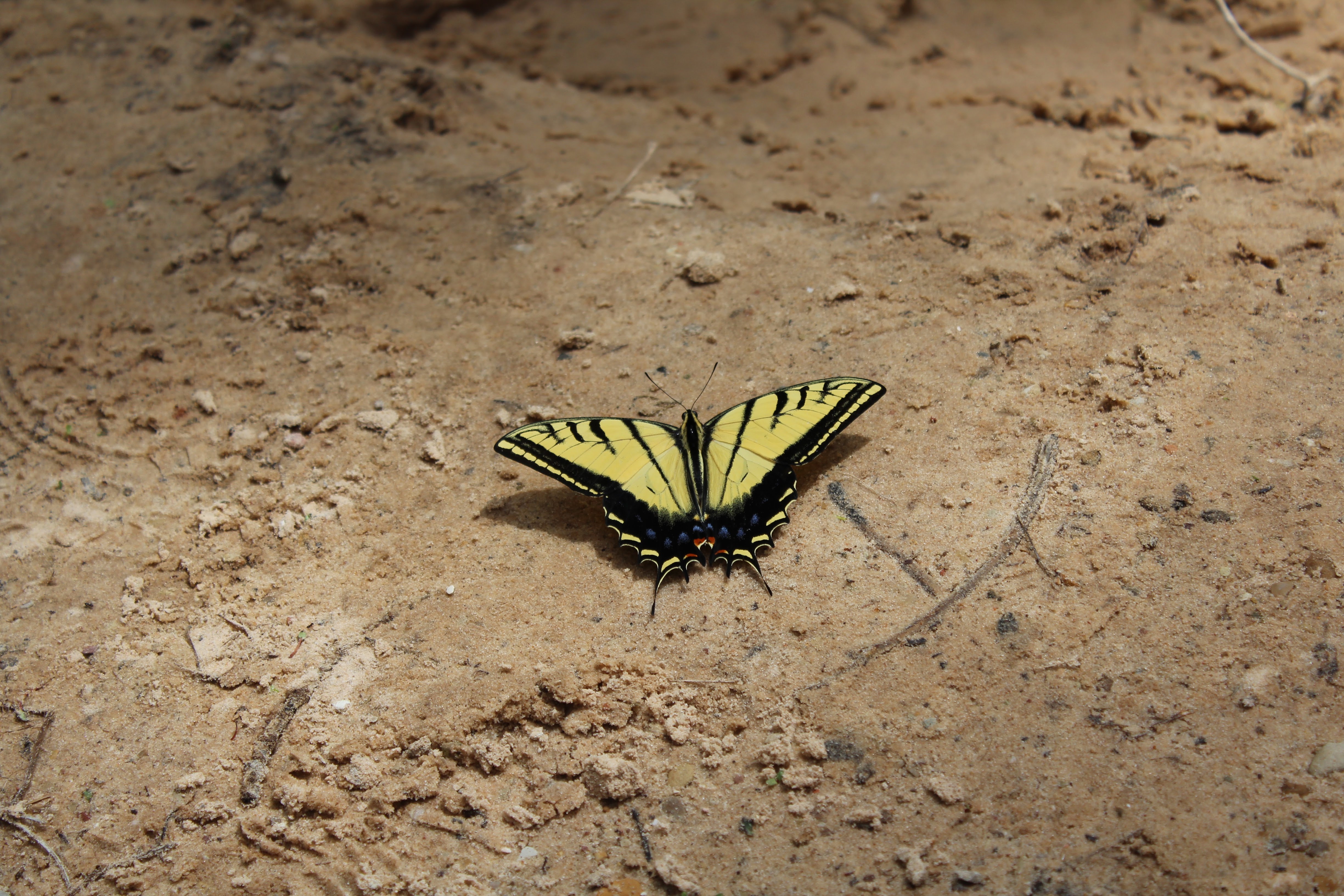
Butterfly; Mt. Zion Park, Utah, 2015
I always enjoy visiting my neighbor, who is 99 years old. He is still as sharp as a tack. I learn so much, he is like a walking history book. His memory is so sharp and keen. I often can’t remember what I ate for lunch yesterday, but he remembers dates, details, and recalls memories from years ago as if they were only yesterday.
Here are a few snippets of our conversation:
In 1670, the plague began. The flea jumped off the rats and onto dogs and cats and then onto humans. There were so many dead, there was no place to bury the dead. In Europe, they threw all the waste and food on the streets, so the rats ate and grew and multiplied, and the disease spread. Same thing happened in the early days of the U.S….
Rats and roaches came to the U.S. on Columbus’ boat. And diseases, too, the Europeans brought diseases, too.
I asked him what he is reading right now, and he is reading a book about the domestication of animals and plants. So, we talked a little bit about domestication. He said people learned by observation: someone eventually observed seeds thrown carelessly resulted in plant growth. He said that happened 15,000 years ago.
I asked him when Adam and Eve were in the garden of Eden, God gave Adam a job to work, but since there were presumably no weeds (before the fall), could Adam have been learning how to seed and replant, and harvest and prune? Could this knowledge have spread from Adam and Eve, down to their descendants, and so on? Who were the original farmers? Did God have to teach all of this to Adam first, and then he taught his sons? Or did Adam learn by observation? I wanted to hear his thoughts on that.
I’m not sure why, but I didn’t get to learn what he thought. Maybe he was being polite, as he thought my question naive or uneducated? That’s ok, as I would not have been offended; I honestly wanted to know his opinion. I was not discounting the fact that humans observed and learned, or the advancement in farming techniques and how farm animals were domesticated, and the development of seeds and plants, but was it really random? Was it through observation only?
On the other hand, perhaps some of it did need to be relearned after the fall, with the appearance of thorns and thistles. Perhaps it was “observation” at that point – and that was part of the curse- the toil of working and fighting with the ground over many years, to “relearn” how to survive outside of Eden and on cursed ground?
I have no idea of any of this, really, but it sure helps to discuss it. 🙂 Not to mention it’s fun and enjoyable to have conversations like this. Not that it matters in the grand scheme of things, what truly happened, but it sure is fascinating, and somehow through wrestling through some of these questions, we can understand more of what does truly matter.
My older son asked him how did the author know what happened 15,000 years ago, and his answer was that it is called “collective memory”.
But, he said, the memory of the Exodus was earlier, and because we are commanded to keep sharing the story from one generation to the next, which we are doing, he said we know of the Exodus account.
( I’ve been thinking since then – the Exodus is a firsthand account. Where are the firsthand accounts from 15,000 years ago? Or was he thinking that there were firsthand accounts from 15,000 years ago which have contributed to our knowledge today? My next question for him is when he – or the rabbi- says Adam and Eve were created….)
(So many interesting questions, right? At least they are to me, anyway. Our conversations are unique and I cannot predict what we might talk about. Maybe I’m weird. That’s ok, too. It’s interesting to me to talk and ponder about some of these things- and with someone else who also is interested! He is a good example to stay active, to keep on reading and learning, and to not grow complacent and lazy when we are old.)
It was the anniversary of the giving of the 10 commandments, so he wasn’t eating meat because of that. His Sabbath meal for Friday would consist of homemade hard rolls, salad, baked whitefish fillets, and one more thing that I can’t remember.
On this visit, he let us taste his pastry he made from scratch- dough filled with prunes and figs- wow- it was delicious! I was amazed he made that from scratch. My son wanted the recipe, and he said he just “knows” how to do it. It was dairy-free and nut-free and wasn’t too sweet-it had the perfect amount of sweetness. His rabbi had visited earlier that day, but the rabbi refused to eat the dessert, because he was very, very picky about it being kosher and such, though he was assured it certainly was. I told him I also make homemade wheat bread and would bring it over and let him sample it.
In 1938, he said, a 50 pound bag of flour cost $1.98. (Do you remember the cost of a 5 pound bag of flour purchased last month or last year? I don’t!) Now of course, flour is much more expensive. He buys some kind of flour from North Dakota, and we were talking about how surprising it was that some brands of flour are currently being recalled because of e. coli contamination.
He said, according to the rabbi, Adam and Eve were 20 years old when they were created. I didn’t know that. (I had assumed they were grown adults at creation, not children, but I had not considered their exact age.)
The word “salary” comes from the word “salt” because people used to get paid in “salt”, and the expression “he isn’t worth his salt” comes from that. This also came up in our conversation.
And all that I learned in a 30 minute conversation. Amazing, huh? He is always so appreciative when the boys and I visit, but honestly it is such a blessing to us and to me personally. I think also the boys can see how much someone much older has to offer . It is sometimes sad to me to see that he lives such a solitary, lonely life, and only has a few visitors a few times a week, for just a short time, but he is intent on remaining in his house and remaining independent, and not moving to some sort of retirement home. How does he pass the time, the majority of it alone? In pain? In difficulty? He’s mentioned before how hard it is for him to get around… how hard it is to be so old. He does groan and move with difficulty. We may marvel at his long life and say what a blessing it is, but in reality, it can be pretty hard.
I left wondering -no, I left with the realization that this could be me, too, someday. At some point, life slows down to such a degree. Boy, was that sobering. Would anyone even come to visit me? He has his two children in town, who do visit weekly, during the week, and on Friday nights, for his weekly homemade Sabbath family meal. Of course, my neighbor has outlived most of his friends and acquaintances and family. Still, it is quite sobering to realize that the rest of us who are younger are just too busy to notice or take the time. I feel the same about my parents, and it does bother me that I live so far away to have any kind of regular impact. Sometimes, I feel pretty helpless, and this world is spinning way too fast and so much is out of my control for me to change anything. But that isn’t really true, either… we can all have some kind of impact where we are. That is sobering and humbling, too, that God wants to use us to bring about good, in spite of ourselves, though he doesn’t really need us. It’s amazing to think we are invited and included to be part of his plan.
Well, that pretty much sums it up for now. More stories to come, I hope.Certainly more lessons to be learned.
